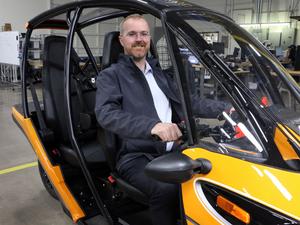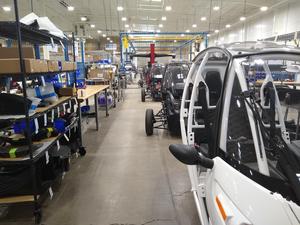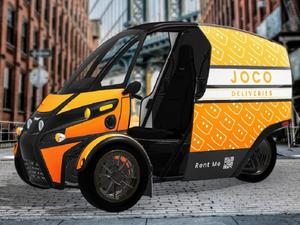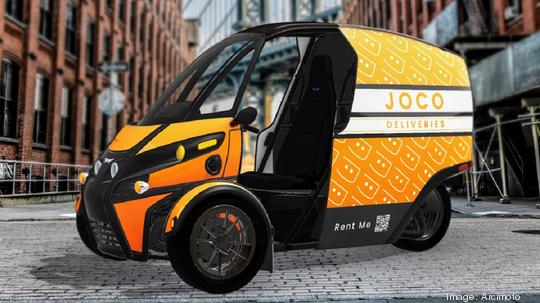
Bill Hambrecht, the Silicon Valley investment pioneer who took a shine to Arcimoto in 2013 and helped it go public in 2017, hasn’t lost faith in the Eugene electric vehicle maker.
“It’s just a tough channel, but look, they’ve come a long way,” Hambrecht said in a telephone interview on Wednesday. “And I still think there’s a real opportunity in the delivery market for them.”
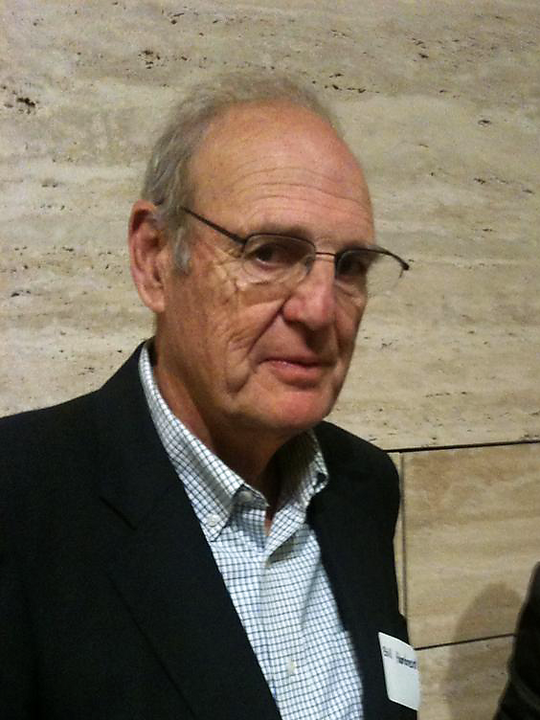
Arcimoto (Nasdaq: FUV) has skated on thin ice for much of its 15-year history, and is now dealing with a sudden leadership change, the pressing need to ramp up both production and demand, and the growing cash demands of a 300-plus-person manufacturing company.
Hambrecht, the founder and chairman at WR Hambrecht+Co, declined to assess Arcimoto’s prospects for raising new capital because of his continued involvement with the company, which includes ties to Ducera Partners, the firm that is looking for strategic partners for Arcimoto.
However, he did endorse stock sales to stay afloat for now. Arcimoto sold 4 million shares in the first six months of the year to raise $16.3 million, then this quarter raised $9 million when the stock was trading between $2.67 and $3.36.
“That will mean there will be more dilution, sure,” Hambrecht said. “But the stakes are so high in something like this that even if they created another 10 million shares over the next year, the upside is still very dramatic.”
That upside, he believes, will come only if Arcimoto can drive down its product prices. The Fun Utility Vehicle now lists for $17,900 but climbs above $20,000 with doors included. The Deliverator, built off the FUV platform, starts at $25,000.
Current price range is hardly disruptive
That’s hardly the disruptive price range Hambrecht fell for — $15,000 upon entering the market, then moving down to $10,000-$12,000 — when he first encountered Arcimoto at a Starve Ups pitchfest in Portland nearly a decade ago.
“If they ever can scale it up and get real economies of scale in the supply chain, they still have a chance to be a dramatically lower-price product,” he said. That could be especially attractive in the delivery game that has become such a cornerstone of modern life since Mark Frohnmayer founded the company in 2007.
“Mark’s view of the market originally was something that he would like to drive around the Eugene campus and that was not the great market,” Hambrecht said. “There’s a market in the consumer space but I don’t think it’s nearly as big as the market in delivery and some of the utility markets.”
Exploiting those opportunities will take expertise and focus, he said.
“They need to really understand the markets that they’re going into better,” Hambrecht said. “You need to know how restaurants handle delivery, and how the Amazons and the Post Offices work. That’s market knowledge they need to add, which I think they’re doing right now.”
Frohnmayer exited as CEO earlier this month and assumed the role of chief vision officer. Chief Strategy Officer Jesse Fittipaldi was installed as interim CEO. The change was precipitated by Frohnmayer’s July 15 driving under the influence of intoxicants arrest, but the founder, citing burnout, said he welcomed the move.
Hambrecht endorsed it as well.
“I had been out in Eugene in April or May, and I spent a couple of days with Mark and then with other people in the management group,” he said. “It was pretty clear to me that he was under pressure and the pressure was starting to get to him.”
Hambrecht lauded Frohnmayer for the mission he set for Arcimoto, and believes he can continue to be an asset.
Maybe too nice a guy
“But I do think this was a time to maybe get a little more pragmatic and harder nose in there to make this thing really go,” he added. “Mark is a very special person and in some ways, he might be too nice a guy just to ram through something like this. You know, so many entrepreneurs, like (Elon) Musk and Steve Jobs, nobody has ever accused them of being nice people.”
Arcimoto brought in Munro & Associates a couple of years ago to revamp its vehicle platform to help make manufacturing more efficient and scalable. Hambrecht suggested that probably wasn’t enough.
“There are certain factors in the automotive market that you can't ignore,” he said. “You have to know how a supply chain works, and how you integrate the different technologies into the vehicle. There are some problems that I think they needed help on from people in the automotive industry. They tried to do that with a consulting arrangement, but I think they need a little more of that.”
While Arcimoto’s current straits might appear harrowing to some investors, Hambrecht said they’re not unusual for a wannabe disruptive startup. Which brought him back to Musk.
“He came a lot closer to disaster than you would think,” Hambrecht said. “He had all kinds of trouble raising money and there were times it looked like he wasn’t going to make it. I think Arcimoto’s going through the same thing.
“I hear analysts say, ‘Gee, they missed on this plan or that plan,’ or ‘When are you getting a product into the marketplace?’ (But) I can’t remember anybody who ever got it exactly right, anticipating every way the market would move, every technology problem.
“When you see these things close up, boy, they’re scary. And it’s something virtually every electric vehicle company is going through.”
